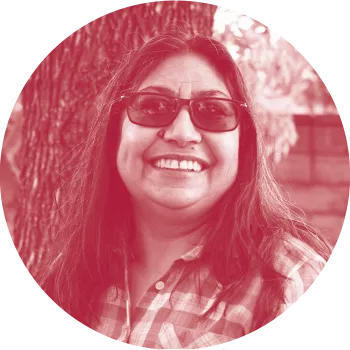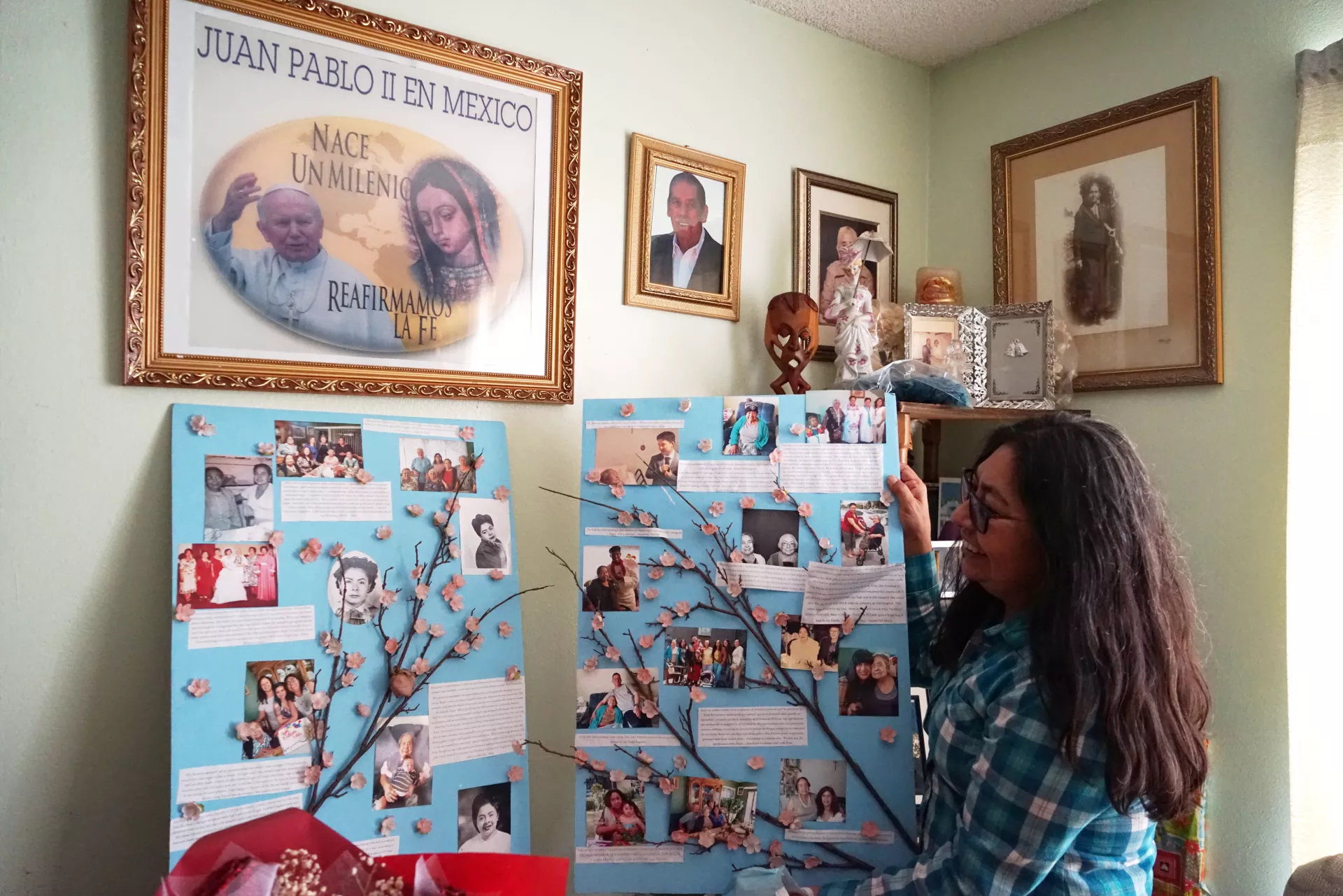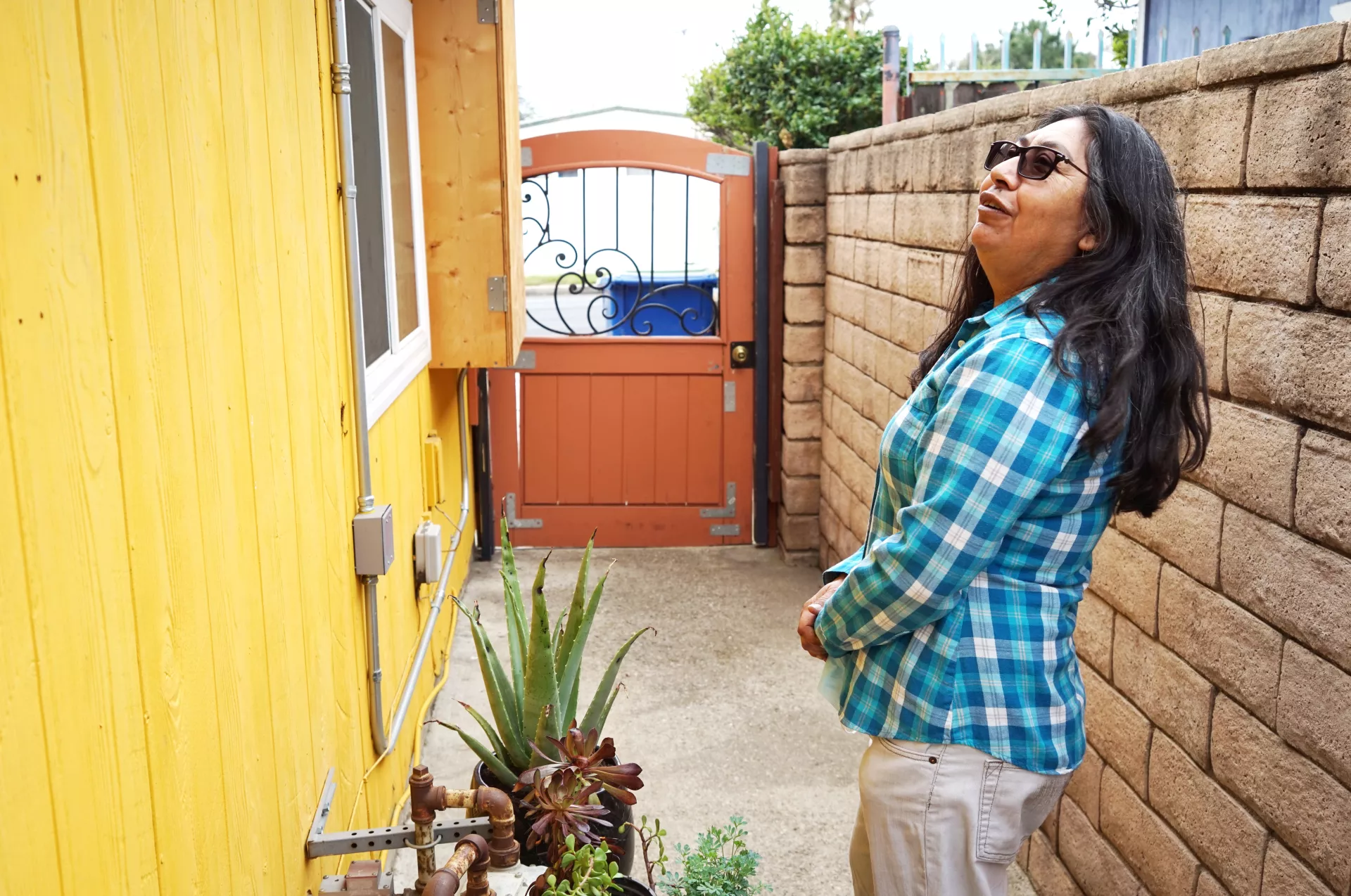
I think that's why it's such a great program, because you've given them something that is their own. It's not an apartment, it's a house.
•
When you first enter Rosie’s home, she will immediately lead you to a bright corner of her living room lined with black-and-white photographs, dried flowers, and religious figurines. This is a shrine dedicated to her mother, Alicia.
“Everything I do is to honor her legacy,” she says.
Alicia wanted her home to be a casa de huéspedes, or a “house for guests,” where all types of people feel welcome and taken care of. Since Alicia passed away, Rosie has sought to fulfill her mother’s wish, which was part of the reason she built an ADU. Alicia’s passing also led Rosie to explore other ways to connect with older individuals, who have always been a fixture in her life. By giving her the ability to rent her ADU to an older adult, Rosie felt like the LA ADU Accelerator Program was the perfect opportunity.

Rosie at a shrine dedicated to her mother, Alicia.
Rosie was also attracted to the LA ADU Accelerator Program for its guarantee of stable, competitive rental payments. Prior to participating in the program, Rosie rented her ADU to international students, or listed it on Airbnb. Both methods were cumbersome and inconsistent, and neither gave her the financial security she needed. In order to pay bills, Rosie took on gig work, such as driving for Uber and pet-sitting. The LA ADU Accelerator Program has given Rosie a consistent source of passive income, helping her achieve greater financial stability.
"Now with COVID, I really have to be careful and I can't do Uber anymore, I can't do Instacart anymore. And I want to retire,” Rosie says. “But the only way I can retire is that I have to be financially set, and [the LA ADU Accelerator Program [is] helping so much. It's secure, and I've paid off some bills already."

Rosie outside of her ADU.
In addition to the financial benefits it has provided, the program has supported Rosie in other ways. Veronica, the program’s Housing Navigator, has ensured that Rosie feels comfortable in her role as a landlord. "It feels like I have backup. If I have any questions, I can ask her," Rosie says.
After interviewing multiple potential tenants, Rosie met Roberto and Maria, an elderly couple who instantly reminded her of her family. Rosie feels fulfilled knowing that her participation in the LA ADU Accelerator Program has given Roberto and Maria a home of their own.
Rosie remembers a time when someone came to visit, Roberto said, “‘Come into my house, I finally have a house. You can now come visit me, because I have a house.’ And this friend said, ‘You have a house, Don Roberto. Finally.’”
“They are so happy that they have something,” Rosie says. “I think that's why it's such a great program, because you've given them something that is their own. It's not an apartment, it's a house.”
In some ways, Rosie also feels that Roberto and Maria have helped her, just like she has helped them. She says that their presence has made her feel “complete” again.